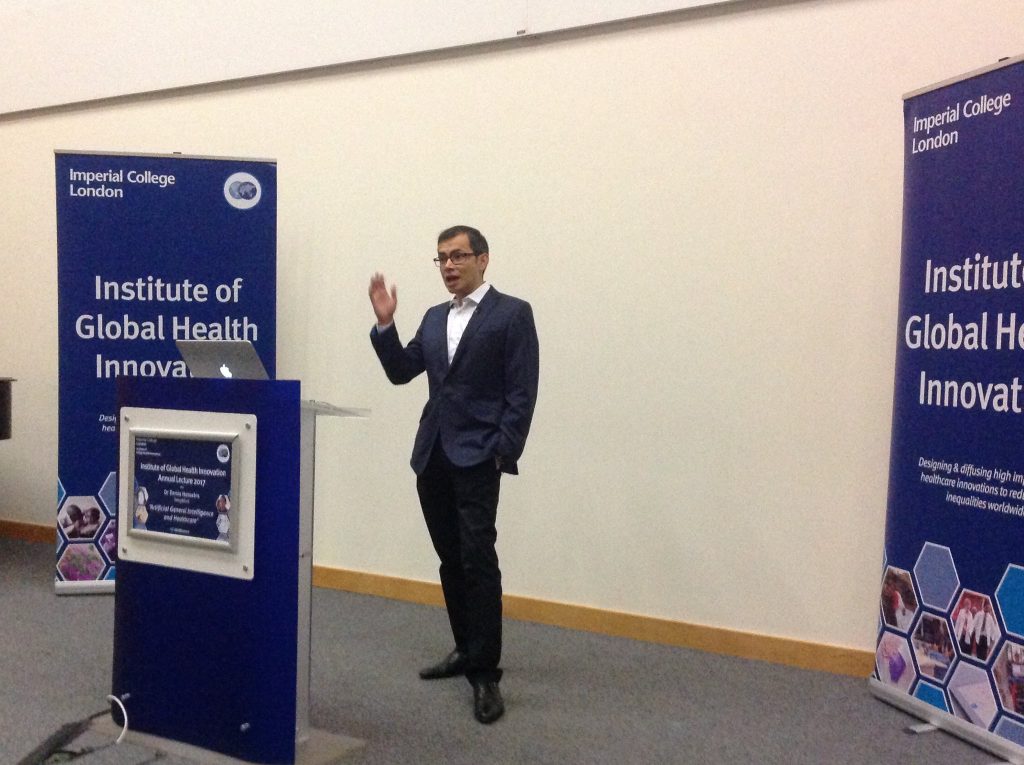In an era where artificial intelligence (AI) is rapidly reshaping the landscape of healthcare diagnostics, our recent BMJ article sheds light on a critical issue: the equity gap in AI healthcare diagnostics. The UK’s substantial investment in AI technologies underscores the nation’s commitment to enhancing healthcare delivery through innovations. However, this evolution brings to the forefront the need for equity: defined as fair access to medical technologies and unbiased treatment outcomes for all.
AI’s potential in diagnosing clinical conditions like cancer, diabetes, and Alzheimer’s Disease is promising. Yet, the challenges of data representation, algorithmic bias, and accessibility of AI-driven technologies loom large, threatening to perpetuate existing healthcare disparities. Our article highlights that the quality and inclusivity of data used to train AI tools are often problematic, leading to less representative data and biases in AI models. These biases can adversely affect diagnostic accuracy and treatment outcomes, particularly for people from ethnic minority groups and women, who are often under-represented in medical research.
To bridge this equity gap, we advocate for a multi-dimensional systems approach rooted in strong ethical foundations, as outlined by the World Health Organization. This includes ensuring diversity in data collection, adopting unbiased algorithms, and continually monitoring and adjusting AI tools post-deployment. We also suggest establishing digital healthcare testbeds for systematic evaluation of AI algorithms and promoting community engagement through participatory design to tailor AI tools to diverse health needs.
A notable innovation would be the creation of a Health Equity Advisory and Algorithmic Stewardship Committee, spearheaded by national health authorities. This committee would set and oversee compliance with ethical and equity guidelines, ensuring AI tools are developed and implemented conscientiously to manage bias and promote transparency.
The advancement of AI in healthcare diagnostics holds immense potential for improving patient outcomes and healthcare delivery. However, realising this potential requires a concerted effort to address and mitigate biases, ensuring that AI tools are equitable and representative of the diverse populations they serve. As we move forward, prioritising rigorous data assessment, active community engagement, and robust regulatory oversight will be key to reducing health inequalities and fostering a more equitable healthcare landscape through the use of AI in healthcare diagnostics.
 On 28 September 2017, I attended the Annual Institute of Global Health Innovation Lecture: Artificial General Intelligence and Healthcare, delivered by Dr Demis Hassabis, co-founder and CEO of Google DeepMind. Artificial intelligence is the science of making machines smart argued Dr Hassabis, so how can we make it improve the healthcare sector? Dr Hassabis then went on to describe the work that DeepMind was carrying out in healthcare in areas such as organising information, deep learning to support the reporting of medical images (such as scans and pathology slides), and biomedical science. Dr Hassabis also discussed the challenges of applying techniques such as reinforcement learning in healthcare. He concluded that artificial intelligence has great scope for improving healthcare; for example, by prioritising the tasks that clinicians had to carry out and by providing decision support aids for both patients and doctors.
On 28 September 2017, I attended the Annual Institute of Global Health Innovation Lecture: Artificial General Intelligence and Healthcare, delivered by Dr Demis Hassabis, co-founder and CEO of Google DeepMind. Artificial intelligence is the science of making machines smart argued Dr Hassabis, so how can we make it improve the healthcare sector? Dr Hassabis then went on to describe the work that DeepMind was carrying out in healthcare in areas such as organising information, deep learning to support the reporting of medical images (such as scans and pathology slides), and biomedical science. Dr Hassabis also discussed the challenges of applying techniques such as reinforcement learning in healthcare. He concluded that artificial intelligence has great scope for improving healthcare; for example, by prioritising the tasks that clinicians had to carry out and by providing decision support aids for both patients and doctors.